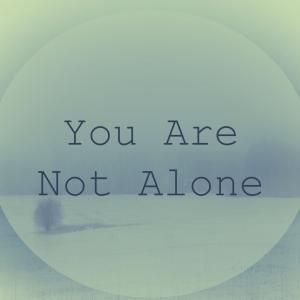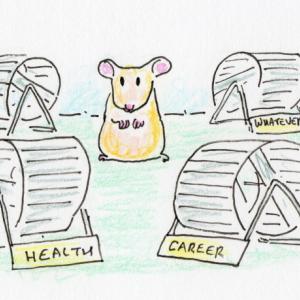
Rachel Marie Stone is a writer, editor, and speaker living near Philadelphia. Her first book, Eat With Joy: Redeeming God's Gift of Food won the 2014 Christianity Today Book Award for Christian living and was named one of the ten most intriguing books of the year by Religion News Service. She is also the author of The Unexpected Way, a book about Jesus for children, and contributes regularly to Books and Culture, Christianity Today, her.meneutics, The Englewood Review of Books, Washington Post's "Acts of Faith" blog, and other publications.
Posts By This Author
Thanks, Birth Control!

Image via Dabarti CGI / Shutterstock.com
It’s still not quite socially acceptable for women to express the desire to use birth control. To do so is to run the risk of being labeled a ‘slut’ — or worse. Forget all the sexual exploitation and objectification of women that’s all over the Internet and the entertainment industry — what’s really offensive in some quarters is the idea that women desire to have sex without having babies.
For more than 25 years, the federal government has funded abstinence-only sex education programs that have mostly proven ineffective (and even misleading). The United States has a rate of teenage pregnancy that’s significantly higher than other developed countries, and roughly half of all American pregnancies are unplanned.
That figure soars to nearly 70 percent when we’re talking about unmarried women under the age of thirty — and these numbers, too, are significantly higher than those in other developed countries.
By some estimates, 40 percent of unintended pregnancies are ended with an abortion.
The Politics of Contraception

Kwangmoozaa / Shutterstock
NOT LONG AGO, a friend asked my opinion about birth control pills. She and her husband, who have several young children, wanted to use them, but she had misgivings.
She had read an article by a Christian couple that had frightened her. “They basically just blasted the entire idea of using hormonal birth control on the basis that it is pretty much abortion,” she said.
Although evangelical sex manuals from the 1970s, including Ed and Gaye Wheat’s Intended for Pleasure, advocated the pill as a means of enjoying the delights of the marital bed without fear of pregnancy, some evangelicals today have a very different perspective. A recent Christianity Today blog series on contraception that I participated in received vigorous and occasionally vitriolic responses, despite giving voice to a range of perspectives: Advocates of hormonal contraception were featured alongside proponents of natural family planning.
How is it that contraception has become a religious battlefield—even, or perhaps especially—among evangelical Protestants?
A certain myth currently in circulation among conservative Christians (Catholic and evangelical alike) harkens back to a pre-contraceptive past when parents welcomed innumerable children, each as a gift from God. In this mythical narrative, the advent in the 1960s of the modern contraceptive pill fostered in people a “hedonistic mentality” and made them “unwilling to accept responsibility in matters of sexuality.” After the pill, children were no longer seen as gifts, but as burdens—“diseases” to be vaccinated against. If, despite precautionary measures, a woman conceived, then her modern “contraceptive mentality” would all but determine that she have an abortion. “Abortion becomes the only possible decisive response to failed contraception,” wrote Pope John Paul II in his 1995 encyclical Evangelium Vitae.
Echoing Evangelium Vitae, in 2006 Southern Baptist leader Al Mohler called for the “rejection of the contraceptive mentality that sees pregnancy and children as impositions to be avoided rather than as gifts to be received, loved, and nurtured.” He also charged that the “effective separation of sex from procreation” was “one of the most ominous” and “important defining marks of our age,” leading to all kinds of sexual degradation.
The implication, of course, is that earlier ages were more closely aligned with God’s will and with “natural law,” the classical philosophy praised by Pope Paul VI in his 1968 encyclical Humanae Vitae.
Infertility and the Role of the Church
If you’re on social media and have a certain number of contacts of childbearing age, chances are good that there are times when it seems that every other post is announcing a pregnancy, the results of a gender-revealing ultrasound, or a birth.
Chances are also good that you don’t see many status updates about infertility, about the difficult “two-week wait” between ovulation and the time that a home test can announce an early pregnancy — or a woman’s monthly period can let her know that her wait isn’t over.
This week — April 19-25 — is National Infertility Awareness Week. For 2015, the theme is “You Are Not Alone.”
That’s an important message for people struggling with infertility.
“It’s a very private struggle,” one woman told me. “It’s a struggle not many people are privy to, so you put on a smile and act like all is well when really you’re in a constant state of grief.”
“It isn’t only about the second bedroom remaining empty or the ache of your empty arms when you see a friend cradling her newborn. Our culture — from our tax policies to our churches — revolve[s] around families with children. When people experience infertility, they grieve what’s missing from their personal lives and are also shut out from the social experience of parenthood,” says Ellen Painter Dollar, a writer who focuses on reproductive health and ethics.
Yet infertility affects more people than you might think: 1 in 8 — 7.4 million — U.S. women of childbearing age have trouble getting pregnant or sustaining a pregnancy to term. Infertility — defined clinically in male-female couples who don’t become pregnant after a year of unprotected sexual intercourse — is caused by many different factors and confluences of factors. Sometimes, perhaps as much as a third of the time, no identifiable cause can be found.
'Tis the Season
THE CONSIDERABLE gap between Walmart’s declared corporate values and the way it actually conducts business widens even more during the holiday season.
This season, shoppers frequenting the world’s largest retailer are encouraged to select the name of a child and to purchase and donate her wished-for gift from one of the “giving trees” located in stores. Throughout the year, the company works hard to give the impression of corporate generosity, giving, for example, to food banks.
However, many of Walmart’s own employees (or, as they are referred to in Walmart-speak, “associates”) are forced to rely on these same types of programs to get by—such as Christmas gifts for their children (purchased by strangers) and groceries from food banks.
Walmart, the United States’ largest employer, employs 1.4 million Americans; that’s five times as many as IBM. Walmart manufactures the very problems that it proudly claims to alleviate, which is worse than doing nothing at all. The deception would be laughable were it not tragic. Walmart seeks praise for funding food banks and providing toys for children in need, when they are a big part of the reason people struggle to buy food and gifts in the first place.
How Should We Respond to the Celebrity Photo Hacks?
When I was a university student, more and more people were getting cell phones that had cameras — a trend I only noticed when signs in the women’s locker room went up, warning that using cell phones in that space was strictly prohibited for reasons of privacy. It’s alarmingly easy to take pictures of someone without their knowing. You can pretend to be writing a text message when, in fact, you’re capturing someone’s image and then posting it on the Internet for anyone to see.
That’s bad manners, of course, if we’re talking about simply posting unflattering photos — and even more morally and ethically questionable if the subjects are in a partial or total state of undress. But even when a person consents to be photographed nude, if those private images end up on the Internet — as roughly 200 such celebrity photographs did last weekend — it can be surprisingly difficult to get them removed.
4Chan, the anonymous message boards where the images first appeared, and Reddit, where they were posted and shared widely, are able to claim that Section 230 of the Communications Decency Act of 1996 allows them to deny responsibility for the content that’s posted to their site by individual users. They certainly have the capability to remove such images, but they don’t want to — and the law doesn’t compel them to.
As Emily Bazelon noted in Slate, Reddit moved quickly to delete nude photographs of Olympic gymnast McKayla Maroney taken while she was underage.
“It’s not that Reddit is too shady to care about the law,” Bazelon writes. “It’s that there is no clear legal risk in continuing to host involuntary porn of adults.”
Showing Deference to the Rich: 'Affluenza' and 'The House I Live In'
I recently watched Eugene Jarecki’s remarkable documentary, The House I Live In, which is about the American ‘war on drugs’ and the burgeoning prison population it engendered and continues to engender.
Rarely do I find myself murmuring and tsk-tsking during a movie, but this one was highly affecting — an intimate look at how history, racism, economics, and politics have created a system that no one is proud of and no one really likes. Even the cops and prison guards who claim to love their jobs express unease with the human suffering and unbalanced scales of justice that lead to it.
One particular story has stayed with me.
A man named Kevin Ott was found in possession of a small envelope of meth; prior to that he’d been arrested twice, again for possessing small amounts of illegal drugs (meth and marijuana).
He’s been in prison for seventeen years. And he will be there until he dies: Ott is serving a life sentence without the possibility of parole. Because he was a three-time offender, his state’s mandatory sentencing laws required that he be put away for life.
Non-Guilt-Trippy Ways to Live Lightly and Consume Less
Many Christians these days are trying to consume less, and they’re doing so for a variety of reasons. For some, in the wake of the economic downturn, thrift is a simple necessity. Others, inspired by books such as Shane Claiborne’s The Irresistible Revolution, Jen Hatmaker’s 7: An Experimental Mutiny Against Excess strive for simplicity for the sake of the health of God’s creation and for the sake of our neighbors, both local and global, who must do without even the basic necessities of life. It’s no secret Americans spend — and waste — a lot.
But how do we begin to consume less? And once we become aware of the horrific conditions under which much of our stuff is made, how do we avoid being overwhelmed by all the injustice that may lie behind our new phone or pair of jeans? And even if we simplify by paring down our wants, what do we do when we actually need to buy something?
Here are some simple strategies to help you live lightly without being overwhelmed by it all.
Please Stop Calling Your Relatively Privileged Life 'Crazy' and 'Messy'
A few weeks ago, I asked folks on Twitter, and specifically, my colleague Amy Simpson, who has recently published a book on mental illness and the mission of the church:
What do you think about the way people use words like “bipolar,” “crazy,” and “manic” when they really mean “moody,” “energetic,” “quirky” and even “fun?"
It’s part of a pattern I’ve noticed lately — and maybe you’ve noticed it too.
People with beautiful head shots, flawlessly designed websites, and enviable accomplishments insist that they are really just a ‘mess.’ Or that their families are ‘crazy.’ Or that their homes and lives are every bit as complicated and frustrating as everyone else’s … meanwhile, their Instagram feeds show nothing but beauty; if ‘chaos’ is there, it’s only ever of the picturesque kind.
There are no birdcages sprouting stalagmites and stalactites of bird droppings. There are no snotty-nosed, unwashed, half-dressed, hungry children who’ve never visited a dentist in their lives. There is food in the fridge and on the table, and it isn’t even growing mold or crawling with roaches or undulating with maggots. In fact, it’s from Trader Joe’s and may even be organic! There is no broken glass or police officers showing up because the neighbors heard screaming. There is electricity and running water and indoor toilets.
Yeah, there’s raised voices and tempers and conflicts. But that makes you human. Not crazy. Not dysfunctional. Not “a mess.”
Kicking the Outrage Habit in the Blogosphere
“All our life, so far as it has definite form, is but a mass of habits,” wrote the psychologist William James.
I think that may be as true online as it is in real life. We tend to do things in a fairly regular pattern; log onto email first, check the news, browse social media, read blogs, get outraged.
Yes: outraged.
Some days I am amazed at how much potent vitriol gets spewed all over the Internet. (Other days I’m just used to it.)
One of the strangest of online habits may be when people repeatedly get upset with the same bloggers and websites, and exclaim their feelings in the comments section and on social media. It’s as if they are going into McDonald’s every day and complaining about all the fast food that’s in there.
The upside of websites you find horrible is that you don’t have to read them.
'You've Got Mail,' A Swedish Movie About Death, Kissing Dating Goodbye, and Finding Love Despite Pride and Prejudice
My husband and I basically fell in love via AOL instant message conversations that led to daily email missives and then to phone calls and then, you know, to actually hanging out in person.
We knew each other in ‘real’ life but I was so afraid of saying something stupid in front of him that I basically ignored him, which, as it happens, is not a great way to indicate that you actually really like someone. But IM-ing made me bold.
So, in a way, You’ve Got Mail feels like one of “our” movies since it parallels our story just a little.
“Our” real movie is Ingmar Bergman’s The Seventh Seal, which is a 1957 Swedish movie about a knight returning from the crusades during the Black Death who is engaged throughout the movie in a chess match with Death, so, yeah, basically the opposite of You’ve Got Mail.
We were both at a “movie night” at one of our professor’s homes. I’d known he was going to be there and wrote in my meticulous, OCD handwriting in my journal:
I’m so nervous because Tim Stone is going to be there and I don’t want to find him attractive.
Heaven forbid I find him attractive, right? I had clearly been a little too good at "Kissing Dating Goodbye" (thanks, Josh Harris!) In those days when someone asked me out for coffee I usually responded with horror, like they’d just ask me to help dispose of a body.
How to Make Space to Create, And Why It Matters
My children spend more time building with Lego than just about anything else. Almost always, what they make is surprising, unexpected, startlingly new.
I want to share some observations from when a totally different thing enters the picture: the Lego building challenges.
For days after they read about a new “challenge” (build a dream home, build some kind of robot, etc.) they’ll work and re-work a project and pester us to photograph them and worry about whether or not they’ll win. Here’s the surprising part:
When they are building for the contest — for that $100 gift card and their picture in the magazine — their creations are startlingly less creative. All of a sudden, they are timid and anxious about their creations. Honestly, their for-contest work is always inferior to their regular work.
Why does this matter? Because I think it shows us something important about motivation and its effect on creativity.
3 Reasons I Really Did Not Like Michael Pollan's Newest, 'Cooked'
I really did not like Michael Pollan's newest offering, Cooked: A Natural History of Transformation. Here are three reasons why:
1. The premise feels phony and staged.
Pollan has said that he is “more at home in the garden than the kitchen” (In Defense of Food), but this modesty about his cooking skills is less than convincing to those who read The Omnivore’s Dilemma, in which he prepared a highly local meal of wild pork cooked two ways, bread leavened with wild yeasts he captured himself, and a sour cherry galette with fruit from Pollan’s own trees.
Why Is It So Hard To Say Things? Thoughts On Newspeak, AIDSpeak, and ObesitySpeak
I am not shy about using the saltshaker, and neither I nor anyone else in my family has any sort of problem with blood pressure. That’s because we mostly don’t eat things that come out of packages or from fast-food places (where someone else takes them out of packages), and the salt that is a problem in the North American diet doesn’t come from the saltshaker but from the extreme levels of sodium in packaged foods.
But you will never hear Michelle Obama say that.
There was a similar unutterability to everything having to do with AIDS back in the day. Even when scientists had a fairly clear understanding of the nature of the threat and how it was spread, most “official” speech tended toward a hedging: “we don’t know what causes it; we don’t want to say what’s causing it …” Even today people don’t get tested because they don’t want to know, even though getting tested obviously doesn’t give you the virus — it merely points out that it is there. It seems to point to so much more, though.
When We Are More Interested in Evangelical Infighting Than Serious Issues of Justice
My dad used to tell a joke from the pulpit, back when “damn” was a much stronger word in evangelical/fundamentalist circles than it is now.
It went roughly like this:
“Millions of people die every day from preventable causes without ever having heard about Jesus’ love, and most of you don’t give a damn, and most of you are probably more worried about the fact that I said ‘damn’ than about the fact that millions of people die daily from preventable causes without ever having heard about Jesus’ love.”
I have a new post up at her.meneutics, Christianity Today’s women’s blog that, quite frankly, I don’t expect too many people to read.
It’s about how it’s perfectly legal in most states to shackle pregnant women while they are in labor.
'If You REALLY Love Jesus, Click and Share!'...And Other Abominations
One of my favorite comments from yesterday's post on Seven Deadly (Social Media) Sins:
"My biggest annoyances are those "If you love Jesus, 'like' and share" posts. My faith and my love are not to be measured by whether I like your cheesy photo/slogan/tool of judgement."
Amen, sister. I think these are even more annoying than those “Just checking to see if you will even read this…if you are reading it, comment and then copy this exactly and paste as your status update. 95% of you will ignore this. Just trying to see who my real friends are” updates. Sniff. Sob. Poor me!
What Anxiety Feels Like (For Me and Maybe for You. With Cartoons.)
I often think that anxiety probably has some helpful prehistoric function, like sensing that a large, hungry carnivore is on the prowl and being the one to let the rest of the group know.
But in the absence of large, hungry carnivores (or other clearly perilous situations) anxiety sometimes feels as useful as the appendix, though it flares up even more often, and can’t be easily removed.
For me, anxiety can run in circles, like a sad, neurotic dog in a too-small pen, or a hamster on a little exercise wheel. And there are different paces–different circles, different wheels–that my anxiety puts me through. Because my dad is awesome, he illustrated it for me thus.
Bringing Fistula into the Light: International Day to End Obstetric Fistula
“An obstetric fistula,” I said, standing in the pulpit of my 200-year old church, “is a hole between a woman’s vagina and her bowel, or between her vagina and her bladder.”
The congregation’s discomfort was palpable. Later someone told me that they couldn’t believe that I’d had the nerve to say the “v-word” twice! It wasn’t exactly the effect I’d hoped to have, but it wasn’t entirely surprising.
Fistula is a childbirth injury that’s unknown today in the developed West, though before the advent of modern maternity care, it affected women — especially poor women — in America as well as Europe. It was likely the reason, at least in some cases, for a woman being euphemistically spoken or written of as an ‘invalid,’ or as having been ‘invalided’ by the birth of a child. Fistula’s story has always been one of (usually secret) suffering; even the surgery to repair the injury, developed by American gynecologist J. Marion Sims in 1840s Alabama, was performed experimentally upon slaves that Sims purchased for the express purpose of perfecting his technique before turning to white patients.
It’s women of color who still all but exclusively suffer fistula’s life-destroying effects.
Fistula happens when a baby gets stuck while being born, often because a girl is either underage, has a pelvic deformity, or has had her genitals deformed by female genital cutting — and there’s no trained person to help. She’ll labor for days without success. Only after the baby is dead and partially softened does it slip out from the exhausted mother, whose suffering has only begun. Days of pressure from the baby’s head have killed blood vessels in her vaginal tissues, which now decay, leaving a hole — or holes — from which urine and feces leak. She has become incontinent. Her husband divorces her. Her family makes her leave the house because of her stench. She can’t even keep herself clean enough, because the water she walks some distance to collect each day is just enough for basic use. The village children mock her for her stench; her neighbors ignore her.
Her story is multiplied between 50,000 to 100,000 times each year.
The Everyday Famine

Image via Photographee.eu/Shutterstock.com
Every day, or nearly so, women and men look in mirrors, step on scales, count calories, and worry about body fat and about their appearance. It happens enough that children as young as four begin to develop anxiety over food, or express fears of being seen in a bathing suit. Even eating healthfully can become an unhealthy obsession. And often enough, people become so desperate to get control over their eating as to spend huge amounts of money on drugs, diet plans, and surgery. Occasionally, the burden of eating, of bodily existence itself, is too much to bear, and people lose their lives to anorexia — the deadliest of all mental illnesses.
How to Get Skinny and Get into Heaven
The top 10 or 20 bestselling books at Amazon.com vary slightly from hour to hour, day to day, but one thing remains pretty constant: There are always several books on spirituality, often with Protestant evangelical leanings; and there are always books on diet, promising either dramatic weight loss or astounding well-being through some “revolutionary” plan.
Even within the category of “Religion and Spirituality,” some of the most popular books focus on diet and bodily health, and when they don’t, they focus on happiness via the most direct route. They’re all about “how to be successful and happy,” “how to make miracles happen,” and “how to know that there really is a heaven, and that you’re going there.”
Having been a skeptic for as long as I can remember, I’ve never had much patience with those books. If books (and checkout-stand magazines, for that matter) really held the secrets for people to “get skinny by this weekend” or “beat cancer with these super-foods,” why did people from my church choose gastric bypass surgery, and why did my father (a pastor) perform so many funerals for the non-survivors of cancer? And if miracles could happen, and people could find success, happiness, and assurance of a place in a heaven that’s “for real,” why, throughout the course of my pious Bible-reading upbringing, did I never seem to find anything in the Bible that sounded remotely like that?
Rethinking Modesty
When I was growing up, the only thing that could be said about clothing was that it should be “modest,” and ideally not too “worldly.” “Modesty” was proof-texted from 1 Timothy 2:9: “I also want women to dress modestly, with decency and propriety, not with braided hair or gold or pearls or expensive clothes.”
Not looking “worldly” usually meant not being too fashionable — neither dressing in accordance with what was popular in the mainstream nor wearing anything with strong counterculture associations: no skater pants for boys, no ripped jeans for girls. This is what was meant, apparently, by 1 John 2:15-17: “Do not love the world, or anything in the world.”
While it seems that fewer churches are pushing the second issue — except, perhaps, to offer OMG-wear and other Christian versions of whatever is popular — modesty continues to be a topic of interest. Most American Christian definitions of modesty involve “not showing too much skin.” The question of male lust is often a part of the discussion. But in context, that doesn’t seem to be what Paul is talking about at all: modesty, in 1 Timothy 2:9, is about not flaunting your wealth, which is a surprisingly important thing in the Epistles as well as the Gospels. Braids and gold and pearls have nothing to do with not looking like the other, non-Christian, worldly women. The opposite of “modest” is not “sexually provocative,” but “flashy.”
















